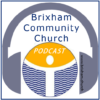Righteousness by Faith
In this series so far…
- The need for a breastplate; Benefits of the Righteous
- The Righteousness of God
- Faithfulness
- Compassion
- Judgement
- Salvation
This time…
Righteousness by faith – God’s righteousness and us
Righteousness requirements of the Law without Christ
- Righteousness in the bible refers to strict adherence to the law. No diversion, walking a straight line.
- Jewish tradition teaches that the Old Testament Law contains 613 commandments, although they have been listed and counted in different ways. Suffice to say, the 10 Commandments were only the beginning.
- The law is perfect.
So then, the law is holy, and the commandment is holy, righteous and good. (Romans 7:12)
The law of the LORD is perfect, refreshing the soul. The statutes of the LORD are trustworthy, making wise the simple. (Psalm 19:7)
- We are not.
There is no one righteous, not even one (Romans 3:10)
for all have sinned and fall short of the glory of God, (Romans 3:23)
All of us have become like one who is unclean, and all our righteous acts are like filthy rags; we all shrivel up like a leaf, and like the wind our sins sweep us away. (Isaiah 64:6)
We could never meet the righteous requirements of the Law in our own strength. We could of course try. Even as Gentiles we could convert to Judaism and attempt to follow the laws but one failure would set us back.
For whoever keeps the whole law and yet stumbles at just one point is guilty of breaking all of it. (James 2:10)
Since Christ
God made him who had no sin to be sin for us, so that in him we might become the righteousness of God. (2 Corinthians 5:21)
So when we put on the breastplate of righteousness we are putting on his righteousness, not our own – that would be no protection at all – chinks in the armour everywhere!
Righteousness by faith was always God’s way. Abraham is a great example because he lived before the Law.
Genesis 15:6
Then he believed in the Lord; and He reckoned it to him as righteousness.
Paul treats this subject carefully in his letter to the Romans.
Romans 4
3 What does Scripture say? ‘Abraham believed God, and it was credited to him as righteousness.’
4 Now to the one who works, wages are not credited as a gift but as an obligation. 5 However, to the one who does not work but trusts God who justifies the ungodly, their faith is credited as righteousness.
6 David says the same thing when he speaks of the blessedness of the one to whom God credits righteousness apart from works:
7 ‘Blessed are those
whose transgressions are forgiven,
whose sins are covered.
8 Blessed is the one
whose sin the Lord will never count against them.’
9 Is this blessedness only for the circumcised, or also for the uncircumcised? We have been saying that Abraham’s faith was credited to him as righteousness. 10 Under what circumstances was it credited? Was it after he was circumcised, or before? It was not after, but before! 11 And he received circumcision as a sign, a seal of the righteousness that he had by faith while he was still uncircumcised. So then, he is the father of all who believe but have not been circumcised, in order that righteousness might be credited to them. 12 And he is then also the father of the circumcised who not only are circumcised but who also follow in the footsteps of the faith that our father Abraham had before he was circumcised.
13 It was not through the law that Abraham and his offspring received the promise that he would be heir of the world, but through the righteousness that comes by faith. 14 For if those who depend on the law are heirs, faith means nothing and the promise is worthless, 15 because the law brings wrath. And where there is no law there is no transgression.
16 Therefore, the promise comes by faith, so that it may be by grace and may be guaranteed to all Abraham’s offspring – not only to those who are of the law but also to those who have the faith of Abraham. He is the father of us all. 17 As it is written: ‘I have made you a father of many nations.’ He is our father in the sight of God, in whom he believed – the God who gives life to the dead and calls into being things that were not.
18 Against all hope, Abraham in hope believed and so became the father of many nations, just as it had been said to him, ‘So shall your offspring be.’ 19 Without weakening in his faith, he faced the fact that his body was as good as dead – since he was about a hundred years old – and that Sarah’s womb was also dead. 20 Yet he did not waver through unbelief regarding the promise of God, but was strengthened in his faith and gave glory to God, 21 being fully persuaded that God had power to do what he had promised. 22 This is why ‘it was credited to him as righteousness.’ 23 The words ‘it was credited to him’ were written not for him alone, 24 but also for us, to whom God will credit righteousness – for us who believe in him who raised Jesus our Lord from the dead. 25 He was delivered over to death for our sins and was raised to life for our justification.
2 Corinthians 5:21
21 God made him who had no sin to be sin for us, so that in him we might become the righteousness of God.
- Our sin is credited to Christ
- His righteousness is credited to us
Why do we need to ‘put on’ righteousness as a breastplate if we are already wearing it?
“You must be reckoned perfect before you can make headway in becoming good.” (John Piper)
Standing firm with the breastplate on means reminding yourself of all he has done. Practical lived-out righteousness by the Spirit.
Romans 6:13
Do not offer any part of yourself to sin as an instrument of wickedness, but rather offer yourselves to God as those who have been brought from death to life; and offer every part of yourself to him as an instrument of righteousness.
Philippians 3:12
Not that I have already obtained all this, or have already arrived at my goal, but I press on to take hold of that for which Christ Jesus took hold of me.
Podcast: Play in new window | Download | Embed
Subscribe: RSS


